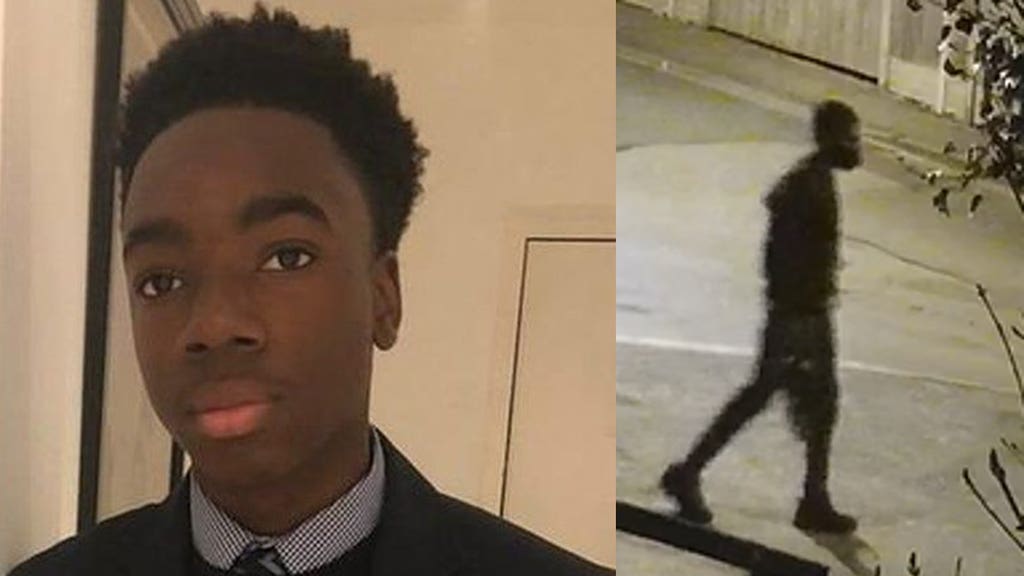Richard Okorogheye: Watchdog to investigate police handling of teenager’s disappearance
The 19-year-old, who had sickle cell disease, went missing from his home in Ladbroke Grove, west London.

Your support helps us to tell the story
From reproductive rights to climate change to Big Tech, The Independent is on the ground when the story is developing. Whether it's investigating the financials of Elon Musk's pro-Trump PAC or producing our latest documentary, 'The A Word', which shines a light on the American women fighting for reproductive rights, we know how important it is to parse out the facts from the messaging.
At such a critical moment in US history, we need reporters on the ground. Your donation allows us to keep sending journalists to speak to both sides of the story.
The Independent is trusted by Americans across the entire political spectrum. And unlike many other quality news outlets, we choose not to lock Americans out of our reporting and analysis with paywalls. We believe quality journalism should be available to everyone, paid for by those who can afford it.
Your support makes all the difference.Police handling of the disappearance of Richard Okorogheye are to be investigated by a watchdog following complaints by his mother.
The 19-year-old, who had sickle cell disease, went missing from his home in Ladbroke Grove, west London, on the evening of March 22.
His mother, Evidence Joel, contacted police the following day, but he was not officially recorded as missing until 8am on March 24.
Mr Okorogheye’s body was found in Epping Forest, Essex on April 5.
His mother later said she had been “disappointed” with the initial police response to his disappearance.
On Monday, watchdog the Independent Office for Police Conduct (IOPC) said it will investigate Ms Joel’s complaints about the way she was initially treated by police, and how her reports about her son’s disappearance were handled.
It will also look at the Met Police overall handling of the missing person report.
IOPC regional director Sal Naseem said: “Our thoughts are with Richard’s family and friends and all those affected by this tragic loss. We have spoken to his family and explained our role.
“Our investigation will establish whether the police responded appropriately to the concerns raised that Richard was missing.
“We will examine whether the force appropriately risk assessed those reports, and if the amount of resources the Metropolitan Police dedicated to its enquiries were suitable based on the information known by the police and the risks posed.
“As there is a mandatory requirement for police forces to refer to us incidents which result in a death or serious injury, we will examine the actions and decisions of the police when dealing with the missing person report made in respect of a vulnerable young man.
“We will also consider whether Richard’s or his mother’s ethnicity played a part in the way the initial reports of his disappearance were handled.”
Speaking to The Independent, Ms Joel said: “Most of the time I was on the phone, they were counting the minutes. They said, ‘Evidence, you called earlier, about an hour ago. You’re still calling. There are no updates. Evidence, you have been on the phone for the last 10 minutes. We can’t give you any more information’.’
The grieving mother also questioned how much officers understood about Richard’s health condition after they tried to reassure her he would “find his way to the hospital” if needed.
“I said, ‘No he can’t. Do you know when you are in crisis? Do you know what the pain is like?,” she said.
During a sickle cell crisis, blood vessels can become blocked by the sickle cells which starves muscles, organs and surrounding tissue of oxygen, causing substantial pain that, left untreated, can last for days.
Richard’ mother also said people have made comparisons with her son’s disappearance and Sarah Everard’s, who went missing when walking home in London in early March and whose body was found in Kent woodland around a week later.
She said: “The public have already summarised, I think the media have summarised, the obvious.
“If Richard was that colour, blue eyes, maybe the reaction would have been different immediately: that’s what they say.”
After leaving his home on March 22, police said further inquiries have established that Mr Okorogheye then took a taxi journey from the W2 area of London to a residential street in Loughton, Essex.
He was last seen on CCTV in Loughton, walking alone on Smarts Lane towards Epping Forest at 12.39am on March 23.
Join our commenting forum
Join thought-provoking conversations, follow other Independent readers and see their replies
Comments